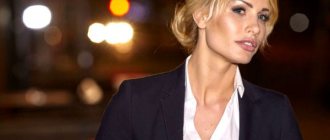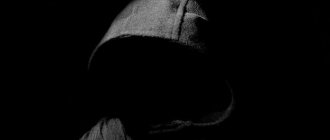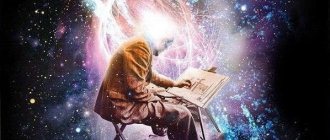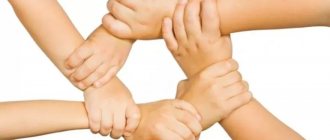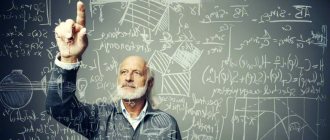Instinct is a person’s innate tendencies towards complex forms of automatic behavior that satisfy certain needs of the body. In a narrow sense, instinct is defined as a set of hereditarily determined actions. It manifests itself in behavioral acts aimed at searching for food, self-preservation, achievement, and the desire to continue one’s family. Instinct is an unconditioned reflex that forms the principles of animal behavior. Higher animals in their individual development come to modify basic instincts, which can achieve more complex expressions of behavior. Human instincts, in addition to being biologically oriented, that is, satisfying the needs necessary for basic existence, go further and involve instincts that satisfy personal needs and intentions (power, dominance, communication).
What it is?
Until now, this concept is interpreted differently by various scientific movements, and in relation to humans it is so complicated that it is impossible to understand without certain preparation.
One of the first relatively precise definitions of instincts was given by William James .
He defined instinct as the ability to act in such a way as to achieve certain goals without prior training and analysis of the situation .
A simple example: a spider weaves a web. It does this thanks to its innate instinct for obtaining food, and this insect is not at all concerned with the mathematical relationship between the length and shape of individual patterns, but this relationship is clearly present.
And this ability is only for a spider. Let's say a person, with all his intelligence and education, is able to weave something similar after lengthy calculations and tests.
Hegel even called instinct unconscious thinking, this is partly true, but here many disagree, placing instincts closer to reflexes, and not to the ability to think.
Thus, instinctiveness is, most often, behavior, the meaning and characteristics of which are already inherent in nature and should not be comprehended.
And instinct is a set of innate tendencies and aspirations that are expressed in the form of automatic behavior.
Do humans have them?
They exist, scientists do not argue with this, only some call them innate motor abilities, although this is not entirely accurate.
Reflexes can also be innate, but they differ from instincts .
Reflex is the reaction of a living creature to an external stimulus.
They come in two types:
- unconditional ones are inherent from birth: we almost unconsciously pull back our hand when touching something hot or when exposed to electric current, stretch our arms in the direction of the fall, etc.
- conditioned ones are acquired during life (everyone here, of course, will remember the experiments of Academician Pavlov), they also develop in people, for example, when entering a dark room, we reflexively reach for the switch and turn on the lighting.
Human instincts are characteristics of his species and differ from the instincts of animals.
For example, we can take, say, the instinct of procreation . In all creatures with male and female individuals, the mating season begins with the male's desire to attract a female or vice versa.
In animals this process is simpler. Let's say a black grouse performs a certain dance on a lek, which tells the female that he, figuratively speaking, wants to get to know her. The nightingale does the same, performing a certain calling trill.
Both the dance and the singing of the bird in these cases never change; this is an unchanging ritual .
Now let's remember what a person is capable of to attract the woman he likes and start a family with her.
There are countless options, thinking here works, as they say, to its fullest, but it is still a manifestation of the same instinct, only at a higher level.
Theory
Some scientists believe that humans have no instincts at all, only reflexes and an innate ability to perform certain actions in a certain situation. But this, in essence, is instinct, only the term is somewhat expanded.
The theory of instinct in humans and animals highlights several of its features :
- instinctive behavior does not require previous learning,
- it is species-typical (this applies to a greater extent to animals), each species has its own genetically programmed norm of behavior,
- Behavior at the level of instincts is not only genetically determined, but develops along with human development.
There are different opinions regarding the last statement. Some consider human instincts to be only innate.
But most scientists agree that they can be acquired depending on the type of activity, habitat and behavior of others.
Acquired instincts are not primary instincts, but can be fixed just as firmly in a person’s consciousness.
Reflexes
Reflex is a mechanism for realizing instinct. In essence, instinct is a complex of unconditioned reflexes. A person is given 15 reflexes at birth. They are divided into three groups: oral, motor, grasping. Most of them die off during the first year of a child's life.
Other reflexes – conditioned, acquired as a result of learning – become vitally important. We look around when crossing the road, not because of the instinct of self-preservation, but because we have been taught. We pull our hand away from the hot kettle because we once got burned.
And the mind also comes into play. People understand that it is not advisable to give birth every year. And in general, many people prefer career and personal growth. The social part suppresses instincts.
Of the unconditional instincts, the most influential instinct remains only the “herd” instinct. The human crowd is susceptible to a number of mechanisms, including infection and imitation. A sense of community or herdism can turn a group into a chaotic crowd and deprive a person of individuality.
Structure of instinctive behavior
Scientist W. Craig once suggested that the behavior of an animal depends not only on certain stimuli, but also on the internal needs of the body.
On this basis, he identified 3 components of instinctive behavior :
- attraction, desire for a certain action,
- search,
- final action.
He classified instinct as an innate ability to perform certain actions, and designated instinctive behavior as a process that occurs not only with the use of instincts, but also with adaptation to specific conditions of existence and with life experience.
For example, the ability to navigate in space in animals (and in humans too) is genetically based, but the stereotype of certain movements of this orientation is formed gradually. This requires the appropriate skills.
How birds find their way south
Speaking of birds. Twice a year, migratory birds accomplish something truly grandiose, if not impossible, and it is not only about overcoming vast distances, but also about choosing the direction of migration. They use many sources of information: the position of the sun and stars, some landmarks, and the planet’s magnetic field.
It seems that this is true instinct: having never been to a wintering place, the bird feels the need to fly exactly there. But in fact, young individuals do not immediately understand where they need to go, and only over time they comprehend the all-wise science of navigation. However, how this happens still remains a mystery. In some species, youngsters simply follow their flock, studying the route, while in others, apparently, the ability to choose the right direction is genetic (if you cross birds with different types of migration, the offspring may get lost).
So instinct is instinct, but it still needs to be learned. But the need to migrate clearly manifests itself instinctively: when the length of daylight changes, physiological changes are triggered in the birds’ bodies, which prompt them to prepare for migration, and then to fly.
Types of instincts: list and characteristics
According to the detailed classification, instincts are divided into the following groups:
- vital , this includes food, drinking, defensive instincts.
These are the strongest instincts, they are basic, however, the instinct of procreation can also be classified as basic. - role-playing , the brightest ones here are parental and gender,
- self-development , gaming, research, etc.
Let's list the main ones.
Self-preservation and survival
It is characterized by the following manifestations :
- regular satisfaction of hunger,
- at cold temperatures, the instinct of self-preservation forces a person to look for warm clothes or a room,
- in extreme heat, on the contrary, there is a need to hide from the sun,
- weapons to protect against attacks,
- treatment in case of illness.
Most of these instincts are natural , but, unlike animals, humans are able to control them.
In principle, if you believe Darwin’s theory, many of these animal instincts were inherited by people from animals, only they look softer.
The absence of the instinct of self-preservation would lead a person to inevitable death. Although, there are extreme situations when turning off the instinct of self-preservation can save the life of the person himself or someone nearby.
For example, when escaping from a deadly chase, the pursued person is able to jump from a cliff into a river from a great height.
The survival instinct manifests itself especially clearly in humans in extreme situations .
For the sake of survival, people are able to change the diet and quality of food, limit water consumption, take shelter from bad weather or natural disasters in any, at least slightly adapted, premises.
The example of Robinson Crusoe is on everyone's lips, even though he is a fictional literary character.
Reproduction and conservation of the species, maternal
The sexual instinct is considered one of the strongest, if not dominant . At the lowest level, sexual relations are viewed as satisfying basic physiological needs.
But at a high level it manifests itself in very strong mutual feelings between a man and a woman.
The instinct of reproduction is adjacent to the previous one, but is not always its continuation.
Some people do not want to have children until old age, but this deviation is more likely mental than intuitive.
It is reproduction that allows people and animals to maintain their population ; disruption of this chain can lead to the extinction of the species.
For example, Australian flamingos only mate during the rainy season. Global warming has literally brought these birds to the brink of extinction.
The instinct of motherhood is also in this group. Females of both humans and animals take care of their offspring, breastfeed them, and protect them.
It is curious that the instinct of motherhood can also manifest itself when feeding someone else's child, and in animals, even a representative of another species.
For example, there are cases when a duck raised chickens, and a puma fed ordinary kittens.
Hunting
Since ancient times , men obtained food , and women were the keepers of the hearth and educators of small children.
Hence the desire of many today's men for hunting and fishing.
True, this instinct is not developed in everyone either ; much depends on the example of a father, grandfather, older brother or friend.
Of death
According to some scientists, it is also present in a person and manifests itself in certain situations. Sigmund Freud defined an instinct of this kind as a person’s natural desire for his original state , that is, simply for the form of matter, and not the body in particular.
Freud's theory of the death instinct, like many studies in the field of psychology, has numerous followers.
Domination and power
It is in vain to think that the desire for power and to control other people is a purely human . It is also present in animal groups.
Usually the physically strongest male becomes the leader of the pack, but in humans this is usually facilitated by mental development.
For example, Napoleon was frankly short, and Roosevelt was disabled in a wheelchair. But this did not stop them from leading countries.
Differences from animals
The most basic difference is that a person is able to control or suppress his needs, especially in those moments when they contradict the law or rules of behavior. With various mental disorders, a person loses the ability to control, which manifests itself, for example, in excessive consumption of food, that is, overeating, or, conversely, refusal of it in case of anorexia, promiscuity, any type of addiction, etc. In such cases, a person becomes like an animal whose main instincts are preservation and procreation.
Animals do not know how to suppress their reflexes, they have no concept of morality, therefore a cat or dog during the period of heat is not selective in choosing a partner; on the contrary, the more of them there are, the higher the probability of having offspring.
Predators kill without feeling pity, just to get enough and feed their young; this, by the way, sometimes doesn’t really distinguish us from animals. Unfortunately, many people are capable of murder for their own gain. And in some ways, animals turn out to be more “humane”, in those cases when they show unspeakable fidelity, creating only one pair in their entire lives, and sometimes they are even ready to die if they lose a partner, or spend the rest of their days alone.

